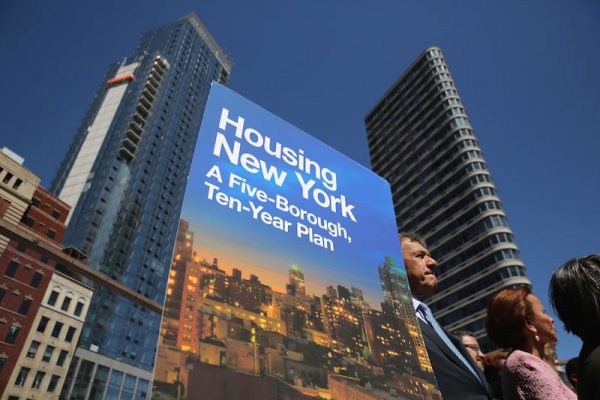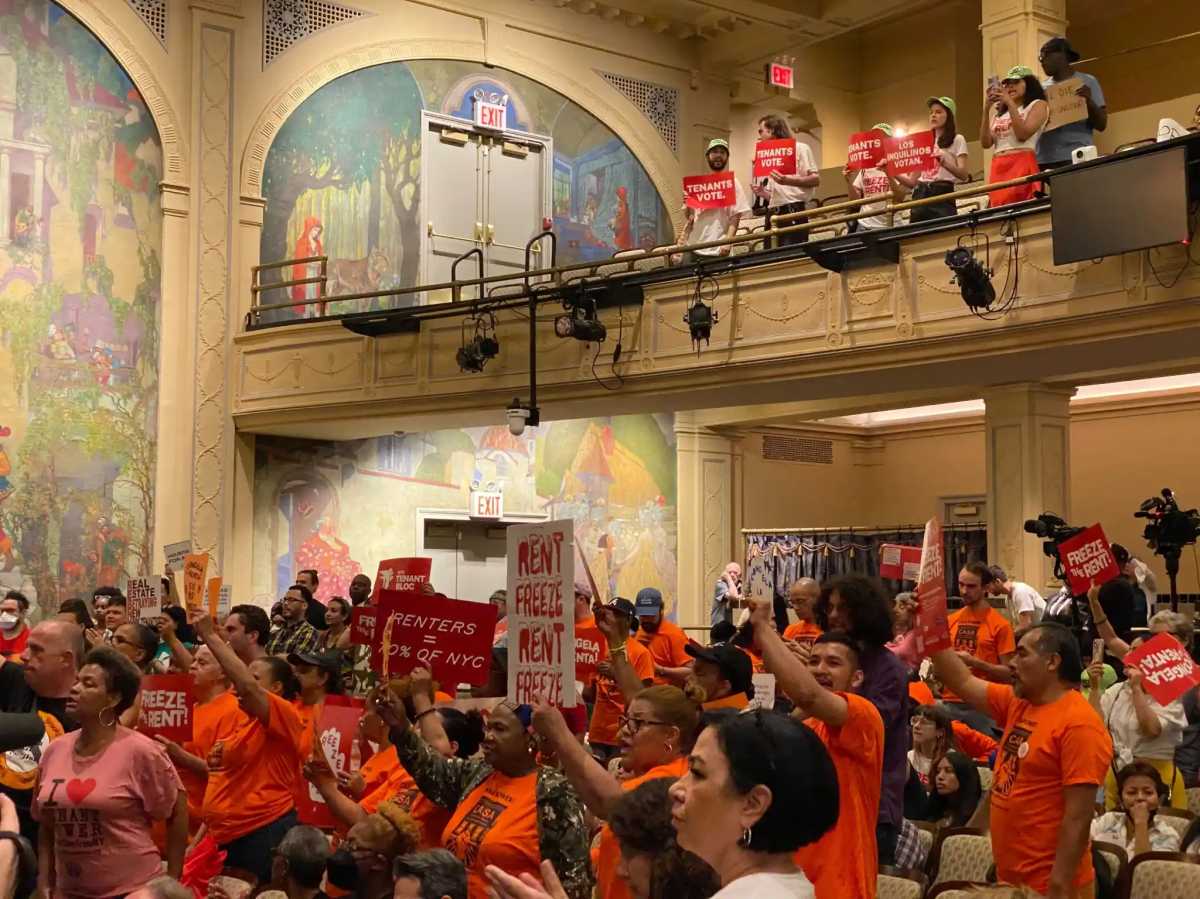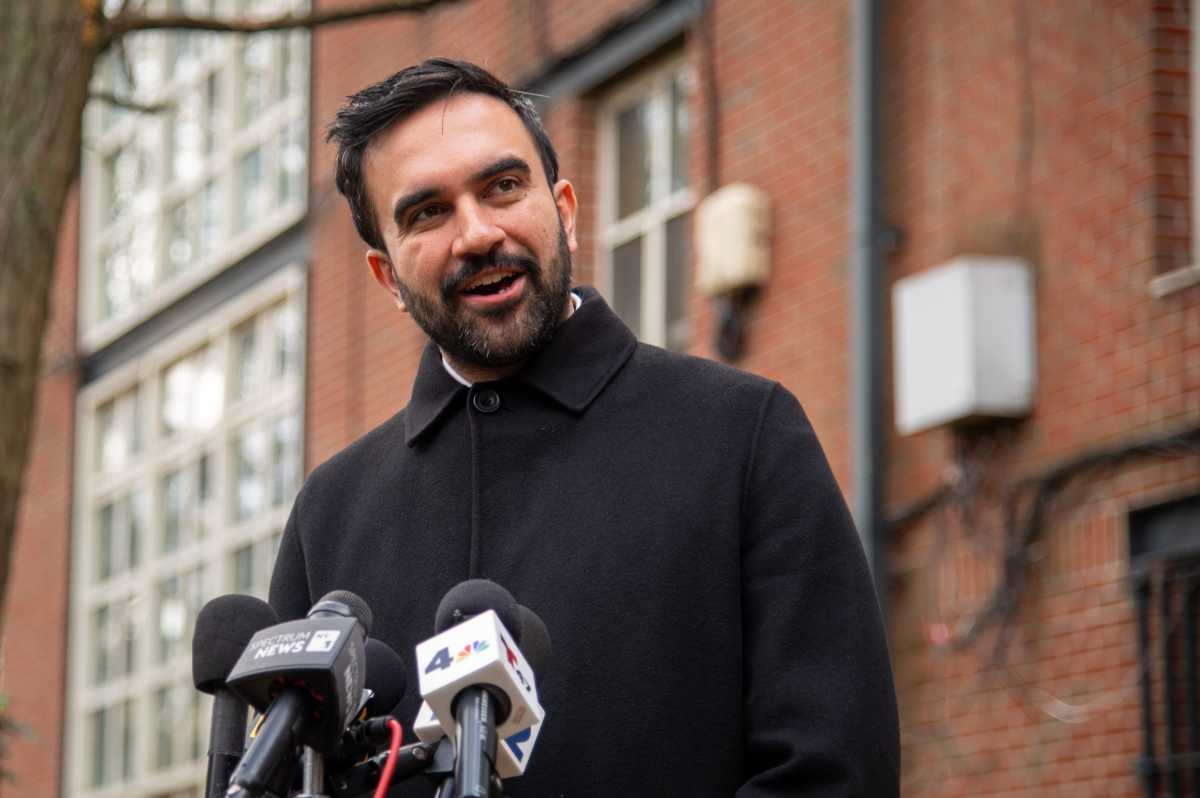Mayor Bill de Blasio this week announced a series of new affordable housing lottery rules designed to ensure that City-assisted affordable housing reaches the New Yorkers who need it most.
Important changes to the policies include ending developers and leasing agents’ ability to deny applications based solely on credit scores; new standards for homeless shelter referrals to account for special challenges faced by these households; strictly limiting the ability of landlords to deny an applicant based only on their exercising due process rights in housing court; and imposing limits on personal assets.

“Every New Yorker deserves equal access to an affordable home, including veterans, the elderly and homeless individuals and families,” said de Blasio. “Disqualifications based solely on credit history, or because a tenant fought for his or her rights in housing court, have no place in our affordable housing programs. These key improvements to the rules level the playing field and give every household the chance to find a home within their means.”
The requirements – the first updates to these guidelines since Housing Connect was launched in 2013 – address feedback received by applicants, affordable housing advocates, marketing agents and for-profit and not-for-profit developers about the City’s affordable housing eligibility criteria and the application process. In response, the city’s housing agencies reviewed and revised the policies to make them fairer, more transparent and more effective at targeting affordable housing to those most in need.
By standardizing all selection criteria, the new guidelines ensure that households who have the ability to pay rent and, by all other indicators, can be expected to be responsible tenants are not rejected solely on the basis of a low credit score, or solely because a tenant appeared in housing court.
The policies also promote greater language accessibility at all stages of the application process, require consistency in how developers and marketing agents communicate with applicants and apply credit criteria and other standards, and increase the transparency of the appeal process.
Developers are notified of the marketing policies and procedures before their affordable housing projects are financed, and are required to follow them to allocate units that become ready for occupancy. About 7 months before the construction project will be completed, developers must submit a marketing plan to the city’s Department of Housing Preservation & Development (HPD) or the city’s Housing Development Corporation (HDC) marketing teams for approval.
The new initiative was lauded by a number of Brooklyn lawmakers.

“Discrimination in housing based on credit score is unacceptable and this new policy will make the public housing lottery fairer and more equitable. I appreciate the steps the City is taking in this regard,” said Congresswoman Nydia M. Velázquez.
“It is vital that we reassess the affordable housing process and increase access to those who are in dire need of it,” said Assembly Member Diana C. Richardson (Crown Heights, Lefferts Gardens). “The new policies presented by Mayor de Blasio and Housing Preservation and Development’s Marketing Handbook help to increase transparency, protect applicant rights and consider the challenges many face in the eligibility process.”

“I would like to commend the Mayor and his Administration for recognizing the need to revise the affordable housing lottery rules and criteria. This revision will allow a substantial number of working class New Yorker’s, who are most in need to now qualify for decent affordable housing, the necessary and real time opportunity to overcome the burdensome restrictions that are currently allowing landlords to deny applicants because of their credit score,” said Assembly Member Walter T. Mosley (Fort Greene, Clinton Hill, Prospect Heights).
“We cannot fully address the City’s housing crisis if there are barriers such as a person’s credit score, and housing court history that prevents them from taking advantage of the affordable housing programs the City puts in place. These factors should not be sole determinants in when considering who is eligible for affordable housing programs; doing so would unnecessarily prevent the most vulnerable New Yorkers in moving forward,” said City Council Member Jumaane D. Williams (Flatbush, East Flatbush, Midwood).

“All New Yorker’s deserve access to affordable housing,” said City Council Member Brad Lander (Park Slope, Windsor Terrace, Kensington). “Poor credit scores are often outside of one’s control and disproportionately impact low-income communities of color in NYC. On top of that, about a quarter of them contains serious mistakes, and can’t even be considered a reliable source of information. I am pleased to hear that the City has restricted its use of credit scores in reviewing housing applications.”
For a summary of affordable housing resources visit: How to Find Housing.










